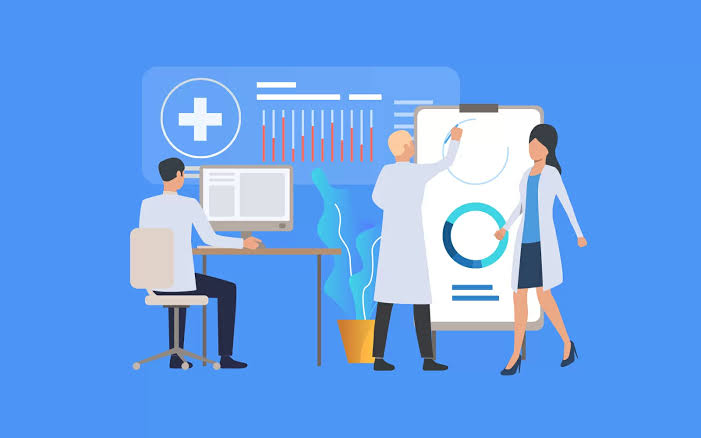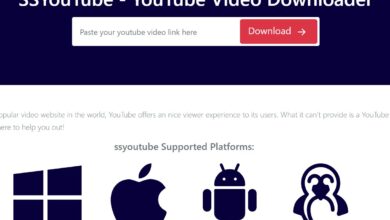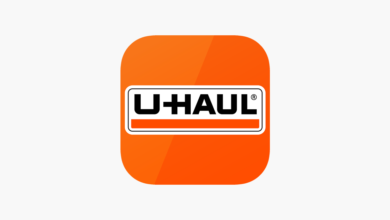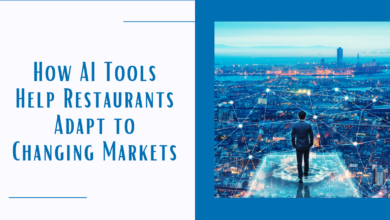HealthTech: Advancements in Software for Healthcare

Healthcare was often characterized as a rambling process with prolonged waits. However, software development for healthcare has brought about a paradigm shift.
HealthTech has revolutionized patient care, administration, and diagnostics. There are many applications that can easily take care of lengthy tasks like patient management and record-keeping with no problems.
Telemedicine apps today can provide wonderful things like remote consultations, systematic patient follow-ups, and remote pharmacy services.
More than that, telemedicine apps save you from long waits and commutes that used to eat all the productive hours of your day.
Now you can schedule appointments efficiently to free up your valuable time whilst receiving routine care.
All of this was possible because of the healthcare app development services offered by the IT domain which transformed the patient experience in unprecedented ways.
This is a time when patients no longer need to endure the frustration of delayed appointments or struggle with managing their medical records.
That’s because medical apps can do all those tasks with minimal effort from the patient’s side, which ensures a smoother healthcare journey overall.
In this article, we’ll discuss how mobile app development plays a vital role in revolutionizing the healthcare sector.
Empowering Patient-Centered Care through HealthTech
Individuals can now access their medical records, schedule appointments, and receive personalized health information all at their fingertips through interactive patient portals and mobile applications.
Furthermore, HealthTech has brought about a remarkable evolution in remote monitoring and telehealth solutions.
Patients no longer need to endure arduous commutes or lengthy waits for routine check-ups. Instead, they can partake in virtual consultations for timely medical guidance without the constraints of physical distance.
Revolutionizing Diagnosis
HealthTech is redefining the diagnostic process through the strategic integration of advanced software solutions.
The processes are transitioning from conventional methodologies to data-driven insights.
This was possible because of the unprecedented arsenal of tools that enabled healthcare professionals to make more informed and precise medical judgments.
Furthermore, HealthTech is enabling remote diagnostics which is erasing geographical barriers by providing access to expert opinions regardless of location.
Telemedicine platforms allow for virtual consultations with specialists which reduces the delays often associated with seeking specialized care.
Wearable Tech for Health Monitoring
Wearable technology is transforming the way we monitor our health.
HealthTech’s pioneering advancements have given birth to a new era where individuals can actively engage in their well-being through innovative wearable devices.
Wearable tech has emerged as a powerful tool in continuous health monitoring. These devices are integrated into our daily lives and collect real-time data, offering insights into various aspects of our physiological well-being.
From smartwatches tracking heart rates and steps to specialized devices measuring blood glucose levels, these technologies bridge the gap between passive patients and proactive health managers.
Moreover, aggregated data from these devices offers researchers and healthcare providers a unique perspective into trends that enables early identification of health issues on a broader scale.
Data-Driven Healthcare
Data-driven healthcare leverages the power of information to optimize medical practices.
The collection and analysis of vast datasets allow healthcare professionals to uncover insights that might otherwise remain hidden.
This transition has fostered a more proactive approach to medical interventions, where treatment plans are tailored to individual patient profiles based on concrete evidence.
One of the transformative applications of data-driven healthcare is predictive analytics. By analyzing historical patient data, the software can identify patterns and potential health risks.
This enables timely interventions to prevent or mitigate adverse outcomes.
Securing Patient Data
Safeguarding sensitive information has become a critical priority which paves the way for a new era of secure and confidential healthcare interactions.
HealthTech introduces a complex network of interconnected data repositories.
With this transformation comes an increased risk of unauthorized access, data breaches, and potential misuse of patient information.
However, HealthTech is not just revolutionizing healthcare; it’s also introducing advanced security protocols to counter these risks effectively.
One of the cornerstones of securing patient data lies in robust encryption methods.
HealthTech solutions employ state-of-the-art encryption algorithms to protect data both in transit and at rest.
This transition ensures that patient information remains confidential, even as it travels through networks or resides within databases.
Furthermore, HealthTech platforms implement multi-factor authentication and biometric verification which adds layers of security to ensure that only authorized personnel can access sensitive patient data.
This shift minimizes the risk of unauthorized access which reduces the potential for data breaches.
Smart Devices in Medicine
One of the key advantages of smart devices is their ability to seamlessly integrate with HealthTech platforms.
These devices collect data that can be transmitted directly to electronic health records, enabling healthcare providers to access up-to-the-minute insights during patient consultations.
This transition from fragmented medical histories to holistic, data-driven snapshots enhances medical decision-making and facilitates more informed discussions between patients and healthcare providers.
Moreover, smart devices in medicine are propelling the evolution of personalized treatment plans.
The data they gather offer insights into an individual’s unique responses to treatments and interventions which allows healthcare professionals to tailor strategies that maximize efficacy and minimize side effects.
Telemedicine’s Global Impact on Healthcare
The global scope of telemedicine is emerging as a transformative force that transcends geographical barriers by offering convenient healthcare accessible everywhere.
Telemedicine empowers healthcare providers to extend their expertise to regions where medical resources are scarce. This ensures that quality care is no longer limited by location.
Furthermore, telemedicine has proven invaluable during times of crisis, demonstrating its readiness to address emergent needs.
This transition from traditional care models to flexible, adaptable telemedicine platforms has been particularly evident in global health emergencies, enabling the continuity of care even in challenging circumstances.
Healthcare was often characterized as a rambling process with prolonged waits. However, software development for healthcare has brought about a paradigm shift.
HealthTech has revolutionized patient care, administration, and diagnostics. There are many applications that can easily take care of lengthy tasks like patient management and record-keeping with no problems.
Telemedicine apps today can provide wonderful things like remote consultations, systematic patient follow-ups, and remote pharmacy services.
More than that, telemedicine apps save you from long waits and commutes that used to eat all the productive hours of your day.
Now you can schedule appointments efficiently to free up your valuable time whilst receiving routine care.
All of this was possible because of the healthcare app development services offered by the IT domain which transformed the patient experience in unprecedented ways.
This is a time when patients no longer need to endure the frustration of delayed appointments or struggle with managing their medical records.
That’s because medical apps can do all those tasks with minimal effort from the patient’s side, which ensures a smoother healthcare journey overall.
In this article, we’ll discuss how mobile app development plays a vital role in revolutionizing the healthcare sector.
Empowering Patient-Centered Care through HealthTech
Individuals can now access their medical records, schedule appointments, and receive personalized health information all at their fingertips through interactive patient portals and mobile applications.
Furthermore, HealthTech has brought about a remarkable evolution in remote monitoring and telehealth solutions.
Patients no longer need to endure arduous commutes or lengthy waits for routine check-ups. Instead, they can partake in virtual consultations for timely medical guidance without the constraints of physical distance.
Revolutionizing Diagnosis
HealthTech is redefining the diagnostic process through the strategic integration of advanced software solutions.
The processes are transitioning from conventional methodologies to data-driven insights.
This was possible because of the unprecedented arsenal of tools that enabled healthcare professionals to make more informed and precise medical judgments.
Furthermore, HealthTech is enabling remote diagnostics which is erasing geographical barriers by providing access to expert opinions regardless of location.
Telemedicine platforms allow for virtual consultations with specialists which reduces the delays often associated with seeking specialized care.
Wearable Tech for Health Monitoring
Wearable technology is transforming the way we monitor our health.
HealthTech’s pioneering advancements have given birth to a new era where individuals can actively engage in their well-being through innovative wearable devices.
Wearable tech has emerged as a powerful tool in continuous health monitoring. These devices are integrated into our daily lives and collect real-time data, offering insights into various aspects of our physiological well-being.
From smartwatches tracking heart rates and steps to specialized devices measuring blood glucose levels, these technologies bridge the gap between passive patients and proactive health managers.
Moreover, aggregated data from these devices offers researchers and healthcare providers a unique perspective into trends that enables early identification of health issues on a broader scale.
Data-Driven Healthcare
Data-driven healthcare leverages the power of information to optimize medical practices.
The collection and analysis of vast datasets allow healthcare professionals to uncover insights that might otherwise remain hidden.
This transition has fostered a more proactive approach to medical interventions, where treatment plans are tailored to individual patient profiles based on concrete evidence.
One of the transformative applications of data-driven healthcare is predictive analytics. By analyzing historical patient data, the software can identify patterns and potential health risks.
This enables timely interventions to prevent or mitigate adverse outcomes.
Securing Patient Data
Safeguarding sensitive information has become a critical priority which paves the way for a new era of secure and confidential healthcare interactions.
HealthTech introduces a complex network of interconnected data repositories.
With this transformation comes an increased risk of unauthorized access, data breaches, and potential misuse of patient information.
However, HealthTech is not just revolutionizing healthcare; it’s also introducing advanced security protocols to counter these risks effectively.
One of the cornerstones of securing patient data lies in robust encryption methods.
HealthTech solutions employ state-of-the-art encryption algorithms to protect data both in transit and at rest.
This transition ensures that patient information remains confidential, even as it travels through networks or resides within databases.
Furthermore, HealthTech platforms implement multi-factor authentication and biometric verification which adds layers of security to ensure that only authorized personnel can access sensitive patient data.
This shift minimizes the risk of unauthorized access which reduces the potential for data breaches.
Smart Devices in Medicine
One of the key advantages of smart devices is their ability to seamlessly integrate with HealthTech platforms.
These devices collect data that can be transmitted directly to electronic health records, enabling healthcare providers to access up-to-the-minute insights during patient consultations.
This transition from fragmented medical histories to holistic, data-driven snapshots enhances medical decision-making and facilitates more informed discussions between patients and healthcare providers.
Moreover, smart devices in medicine are propelling the evolution of personalized treatment plans.
The data they gather offer insights into an individual’s unique responses to treatments and interventions which allows healthcare professionals to tailor strategies that maximize efficacy and minimize side effects.
Telemedicine’s Global Impact on Healthcare
The global scope of telemedicine is emerging as a transformative force that transcends geographical barriers by offering convenient healthcare accessible everywhere.
Telemedicine empowers healthcare providers to extend their expertise to regions where medical resources are scarce. This ensures that quality care is no longer limited by location.
Furthermore, telemedicine has proven invaluable during times of crisis, demonstrating its readiness to address emergent needs.
This transition from traditional care models to flexible, adaptable telemedicine platforms has been particularly evident in global health emergencies, enabling the continuity of care even in challenging circumstances.



